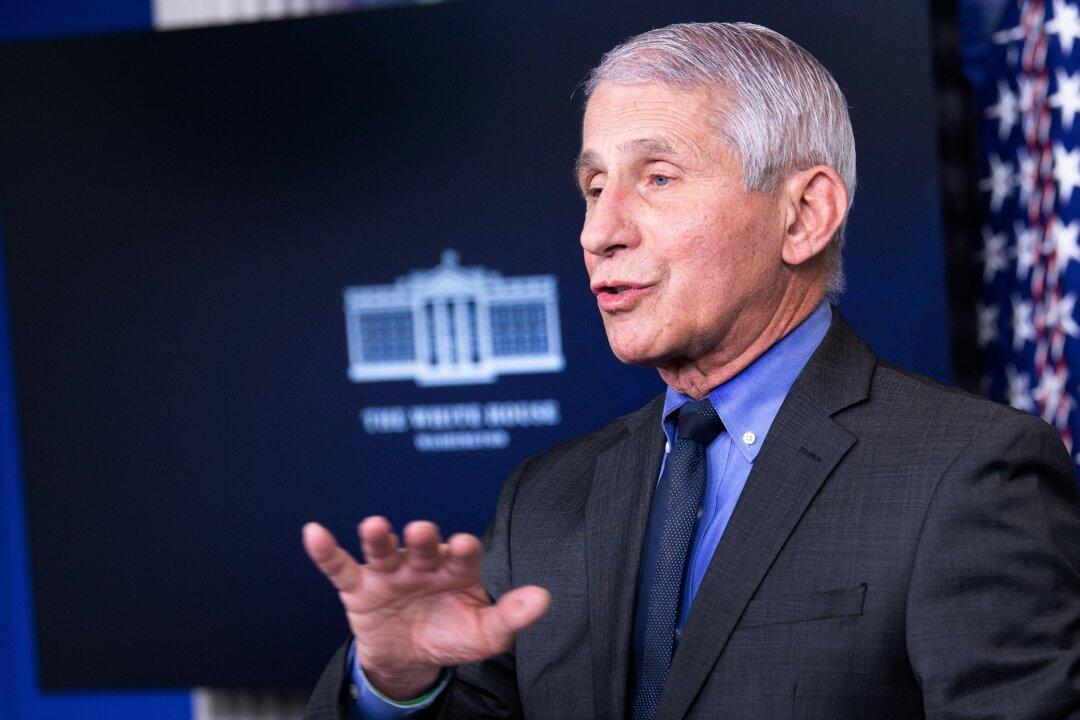There are similarities between the blood-clotting issues seen in people after getting two different COVID-19 vaccines, Dr. Anthony Fauci said on April 14.
“There are some rather strong similarities about this with regard to the timeframe following vaccination, particularly importantly, the clinical syndrome of these clots together with low platelets, so there are a lot of similarities there that you just can’t miss,” the longtime director of the National Institute of Allergy and Infectious Diseases said on NBC’s “Today” show.





